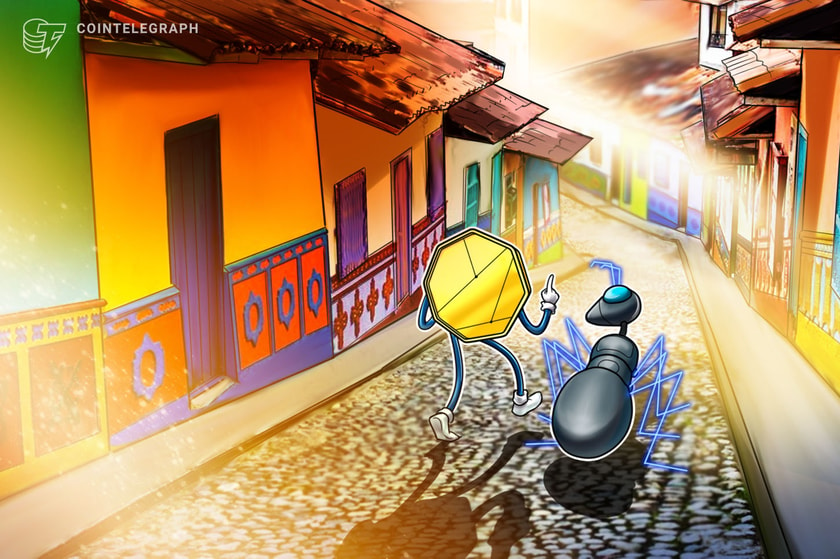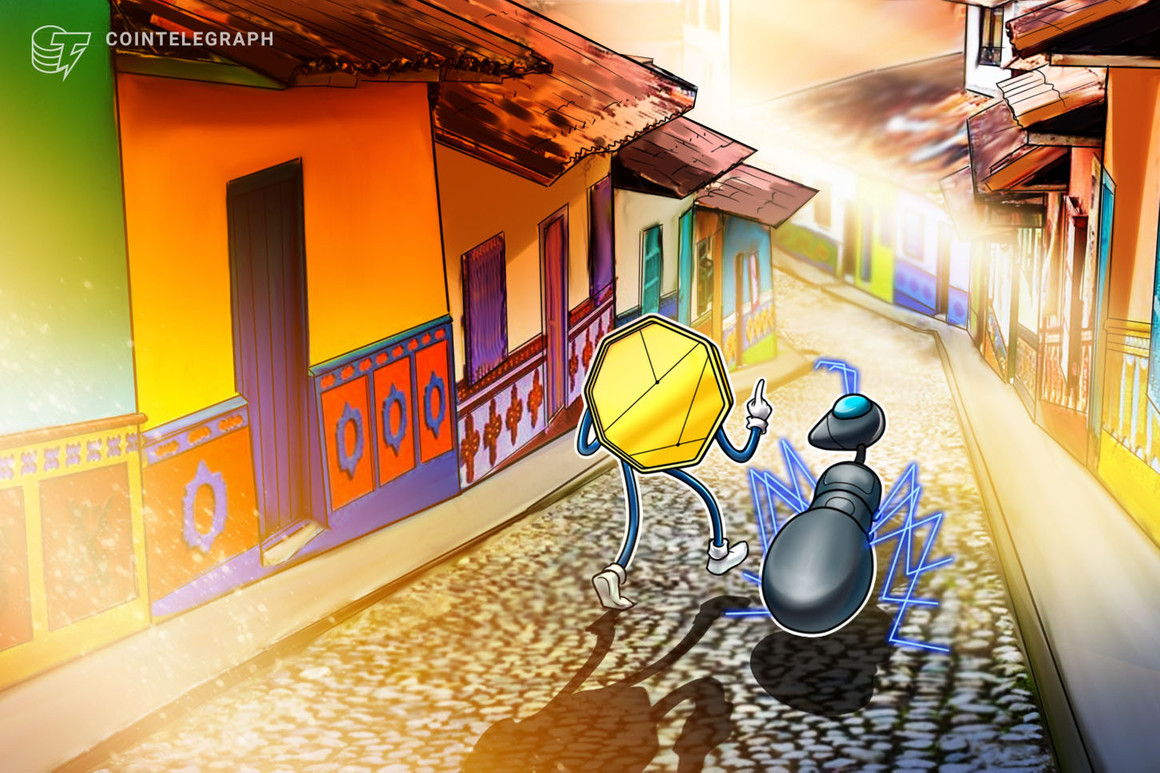 Looking to get involved with a platform that can change the face of decentralized finance forever? Xuirin Finance is revolutionizing the DeFi landscape through its innovative offerings like KYC-free debit cards, P2P lending, and so much more. Supporters can take part in the first stage of its presale right now. Xuirin Finance to Offer Futuristic […]
Looking to get involved with a platform that can change the face of decentralized finance forever? Xuirin Finance is revolutionizing the DeFi landscape through its innovative offerings like KYC-free debit cards, P2P lending, and so much more. Supporters can take part in the first stage of its presale right now. Xuirin Finance to Offer Futuristic […]
Source link
p2p
Disgruntled consumers have filed a class-action lawsuit against Apple, claiming the tech giant has conspired to limit peer-to-peer (P2P) payment options on its devices and block crypto technology from iOS payments apps.
The Nov. 17 complaint filed in a California District Court alleges Apple entered into anti-competitive agreements with PayPal’s Venmo and Block’s Cash App to restrict the use of decentralized cryptocurrency technology in payment apps, which caused users to pay “rapidly inflating prices.”
“These agreements limit feature competition—and the price competition that would flow from it—marketwide, including by barring the incorporation of decentralized cryptocurrency technology within existing or new iOS Peer-to-Peer Payment apps,” the filing says.
The plaintiffs also claimed Apple uses “technological and contractual restraints,” including hardware-enforced App Store exclusivity and “contractual limitations on web browser technology” to “exercise unfettered control over every app installed and run on iPhones and iPads.”
With these restraints, Apple can — and does — force new to-market iOS P2P payment apps to bar crypto “as a condition for entry,” the suit claimed.

The plaintiffs describe themselves as customers who have paid inflated fees due to Apple’s restraints of trade across the iOS P2P payment market.
They seek to recover for excessive fees and overcharging due to Apple’s alleged anti-competitive conduct and injunctive relief barring the firm from continuing to enter into and enforce anti-competitive agreements restraining iOS P2P payment market competitors and would-be entrants.
Related: Apple’s 30% tax rules will stay for now, crypto and NFTs may have to wait
The 58-page filing details the history and rise of peer-to-peer payment apps, decentralized cryptocurrencies and Apple’s entry into the market.
In April, the United States Court of Appeals for the Ninth Circuit ruled Apple violated California’s competition laws by not allowing apps to direct users to non-Apple linked payment solutions.
Magazine: 6 Questions for Lugui Tillier about Bitcoin, Ordinals, and the future of crypto
Binance has removed several sanctioned Russian banks from its peer-to-peer (P2P) trading service, The Wall Street Journal reported on Aug. 25.
The news outlet cited a quote from Binance, which stated:
“We regularly update our systems to ensure compliance with local and global regulatory standards. When gaps are pointed out to us, we seek to address and remediate them as soon as possible … [Payment methods that] do not fit with our compliance policies are not available on our platform.”
The report detailed that five banks are no longer available on Binance’s P2P crypto trading service. That service otherwise includes options allowing users to make direct transfers to and from bank accounts in exchange for crypto.
Controversy around those Russian banks emerged earlier in the week. On Aug. 22, WSJ reported that the company continued to allow peer-to-peer trading involving the Russian banks in question. Furthermore, Binance volunteers allegedly advertised an absence of Russian trading restrictions on Telegram.
Later, reports from Russian media suggested that Binance renamed certain bank options to hide their sanctioned status. The Russian majority state-owned Sberbank and the branchless neobank Tinkoff were displayed as “green local card” and “yellow local card,” matching the respective logo color schemes of those two banks.
The Wall Street Journal additionally identifies Rosbank as one of the now-delisted and sanctioned banks. It is unclear which other Russian banks were originally present on, or have been removed from, Binance’s peer-to-peer trading platform.
Binance is largely available to Russian users
Binance’s P2P exchange continues to support several other Russian banks that are either not sanctioned or only partially sanctioned. The P2P exchange lists 16 Russian payment methods, including major banks such as Russian Standard Bank, Home Credit Bank, and Raiffeisenbank. Russian users can also make non-bank transfers through payment processors such as Payeer and Advcash.
The Wall Street Journal’s latest report additionally suggests that Russian users are able to use the delisted banks by manually inputting bank details.
Binance’s P2P policies are separate from its more restrictive main exchange policies. However, even those policies are being liberalized: while Binance placed a €10,000 limit on Russian accounts in April 2022, it lifted that policy in April 2023.
The post Binance removes five sanctioned Russian banks from P2P trading: WSJ appeared first on CryptoSlate.
Bitfinex launches P2P trading platform in Venezuela, Argentina and Colombia

Digital asset exchange Bitfinex has launched a peer-to-peer (P2P) trading platform in Venezuela, Argentina and Colombia.
In a June 27 announcement, the crypto exchange said it had started the “Bitfinex P2P” platform allowing users in the South American nations to buy and sell Bitcoin (BTC), Ether (ETH), Tether (USDT), Tether’s euro-pegged stablecoin EURT and Tether Gold (XAUT). Bitfinex chief technology officer Paolo Ardoino suggested the expansion into the three countries was part of the firm’s efforts to promote digital asset-related financial services in Latin America.
Something BIG is happening! #BitfinexP2P is redefining P2P trading, driving economic growth, and promoting financial inclusivity in LATAM.
Learn more: pic.twitter.com/gw2Y9X4CfP
— Bitfinex (@bitfinex) June 27, 2023
Related: Peer-to-peer crypto exchanges struggle to navigate shifting legal landscape
The launch announcement followed Bitfinex’s El Salvador arm receiving a digital asset service provider license from the country’s National Digital Asset Commission in April. The exchange also partnered with Chile-based crypto platform OrionX in May, aiming to support local education programs and financial literacy.
P2P crypto exchange LocalBitcoins, which provided services to many residents of Latin America, shuttered its operations in February after more than 10 years. Paxful, another platform popular in the region, suspended operations in April but announced in May it was back online.
Magazine: Cryptocurrency trading addiction: What to look out for and how it is treated
In the face of Apple AppStore removal, the team behind Damus, a popular social media app built on top of Nostr, definitely calls for Apple to adopt censorship-resistant, peer-to-peer payment systems, and pledges to continue supporting their platform on Android, Web, and desktop versions.
The recent move by Apple to remove Damus from the AppStore has sparked heated debates among industry leaders and users alike.
As reported on the Damus Twitter account, the company is determined to persist despite Apple’s decision, stating that “nostr doesn’t care, lightning doesn’t care” and “you can not stop us. The zaps must flow  .”
.”
The app also announced plans to release a “freedom edition” for macOS desktops and to explore the possibility of offering the app on Android and EU iOS17 sideloading. Damus criticized Apple for lacking support for peer-to-peer transactions and accused the tech giant of being “anti-freedom.”
Compliance issues with Apple
The issue persisted as Apple recently informed Damus that their app still did not comply with Guideline 3.1.1 – Business Payments, which requires in-app purchases to be used for transactions associated with receiving digital content. Damus argued that no digital content is unlocked when users send zaps, calling the idea that content is being sold “nonsense.”
In response to Apple’s decision, Damus has changed its app, removing the tap on the zap button and moving the zapping feature to user profiles. The team behind the app has expressed frustration with the limitations imposed upon their platform, accusing Apple of “giving more reasons for people to switch away from your hardware.”
The broader cryptocurrency community has rallied in support of Damus, with notable figures like former Jack Dorsey and Mike Brock from Block retweeting the app’s statements and condemning Apple’s App Store monopoly. On the Damus app, Walker, a nostr advocate and MD of BTC Times, highlighted past instances of Apple removing apps, such as Bitcoin wallets in 2014 and VPN apps from the China App Store in 2017, accusing the company of being “anti-freedom.”
The post Damus calls for Apple to adopt p2p payments amid AppStore removal appeared first on CryptoSlate.





